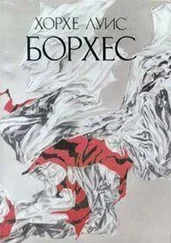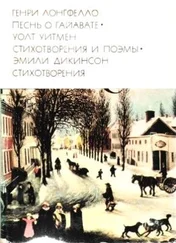Уолт Уитмен - The Wound Dresser
Здесь есть возможность читать онлайн «Уолт Уитмен - The Wound Dresser» — ознакомительный отрывок электронной книги совершенно бесплатно, а после прочтения отрывка купить полную версию. В некоторых случаях можно слушать аудио, скачать через торрент в формате fb2 и присутствует краткое содержание. Жанр: foreign_prose, История, foreign_edu, foreign_antique, на английском языке. Описание произведения, (предисловие) а так же отзывы посетителей доступны на портале библиотеки ЛибКат.
- Название:The Wound Dresser
- Автор:
- Жанр:
- Год:неизвестен
- ISBN:нет данных
- Рейтинг книги:4 / 5. Голосов: 1
-
Избранное:Добавить в избранное
- Отзывы:
-
Ваша оценка:
- 80
- 1
- 2
- 3
- 4
- 5
The Wound Dresser: краткое содержание, описание и аннотация
Предлагаем к чтению аннотацию, описание, краткое содержание или предисловие (зависит от того, что написал сам автор книги «The Wound Dresser»). Если вы не нашли необходимую информацию о книге — напишите в комментариях, мы постараемся отыскать её.
The Wound Dresser — читать онлайн ознакомительный отрывок
Ниже представлен текст книги, разбитый по страницам. Система сохранения места последней прочитанной страницы, позволяет с удобством читать онлайн бесплатно книгу «The Wound Dresser», без необходимости каждый раз заново искать на чём Вы остановились. Поставьте закладку, и сможете в любой момент перейти на страницу, на которой закончили чтение.
Интервал:
Закладка:
Walt Whitman
The Wound Dresser / A Series of Letters Written from the Hospitals in Washington during the War of the Rebellion
But in silence, in dreams’ projections,
While the world of gain and appearance and mirth goes on,
So soon what is over forgotten, and waves wash the imprints off the sand,
With hinged knees returning I enter the doors, (while for you up there,
Whoever you are, follow without noise and be of strong heart.)
I onward go, I stop,
With hinged knees and steady hand to dress wounds,
I am firm with each, the pangs are sharp yet unavoidable,
One turns to me his appealing eyes—poor boy! I never knew you,
Yet I think I could not refuse this moment to die for you, if that would save you.
I am faithful, I do not give out,
The fractur’d thigh, the knee, the wound in the abdomen,
These and more I dress with impassive hand, (yet deep in my breast a fire, a burning flame.)
Thus in silence, in dreams’ projections,
Returning, resuming, I thread my way through the hospitals,
The hurt and wounded I pacify with soothing hand,
I sit by the restless all the dark night, some are so young,
Some suffer so much, I recall the experience sweet and sad,
(Many a soldier’s loving arms about this neck have cross’d and rested,
Many a soldier’s kiss dwells on these bearded lips.)
PREFACE
AS introduction to these letters from Walt Whitman to his mother, I have availed myself of three of Whitman’s communications to the press covering the time during which the material which composes this volume was being written. These communications (parts of which, but in no case the whole, were used by Whitman in his “Memoranda of the Secession War”) seem to me to form, in spite of certain duplications, which to my mind have the force, not the weakness, of repetition, quite an ideal background to the letters to Mrs. Whitman, since they give a full and free description of the circumstances and surroundings in the midst of which those were composed. Readers who desire a still more extended account of the man himself, his work and environment at that time, may consult with profit the Editor’s “Walt Whitman” (pp. 34-44), O’Connor’s “Good Gray Poet” (included in that volume, pp. 99-130), “Specimen Days” (pp. 26-63, included in Walt Whitman’s “Complete Prose Works”), and above all the section of “Leaves of Grass” called “Drum-Taps.” I do not believe that it is in the power of any man now living to make an important addition to the vivid picture of those days and nights in the hospitals drawn by Whitman himself and to be found in his published prose and verse, and, above all, in the living words of the present letters to his mother. These last were written on the spot, as the scenes and incidents, in all their living and sombre colors, passed before his eyes, while his mind and heart were full of the sights and sounds, the episodes and agonies, of those terrible hours. How could any one writing in cold blood, to-day, hope to add words of any value to those he wrote then?
Perhaps, in conclusion, it may be as well to repeat what was said in the introduction to a former volume,—that these letters make no pretensions as literature. They are, as indeed is all that Whitman has written (as he himself has over and over again said), something quite different from that—something much less to the average cultured and learned man, something much more to the man or woman who comes within range of their attraction. But doubtless the critics will still insist that, if they are not literature, they ought to be, or otherwise should not be printed, failing (as is their wont) to comprehend that there are other qualities and characteristics than the literary, some of them as important and as valuable, which may be more or less adequately conveyed by print.
R. M. B.THE GREAT ARMY OF THE WOUNDED
THE military hospitals, convalescent camps, etc., in Washington and its neighborhood, sometimes contain over fifty thousand sick and wounded men. Every form of wound (the mere sight of some of them having been known to make a tolerably hardy visitor faint away), every kind of malady, like a long procession, with typhoid fever and diarrhœa at the head as leaders, are here in steady motion. The soldier’s hospital! how many sleepless nights, how many women’s tears, how many long and waking hours and days of suspense, from every one of the Middle, Eastern, and Western States, have concentrated here! Our own New York, in the form of hundreds and thousands of her young men, may consider herself here—Pennsylvania, Ohio, Indiana, and all the West and Northwest the same—and all the New England States the same.
Upon a few of these hospitals I have been almost daily calling as a missionary, on my own account, for the sustenance and consolation of some of the most needy cases of sick and dying men, for the last two months. One has much to learn to do good in these places. Great tact is required. These are not like other hospitals. By far the greatest proportion (I should say five sixths) of the patients are American young men, intelligent, of independent spirit, tender feelings, used to a hardy and healthy life; largely the farmers are represented by their sons—largely the mechanics and workingmen of the cities. Then they are soldiers. All these points must be borne in mind.
People through our Northern cities have little or no idea of the great and prominent feature which these military hospitals and convalescent camps make in and around Washington. There are not merely two or three or a dozen, but some fifty of them, of different degrees of capacity. Some have a thousand and more patients. The newspapers here find it necessary to print every day a directory of the hospitals—a long list, something like what a directory of the churches would be in New York, Philadelphia, or Boston.
The Government (which really tries, I think, to do the best and quickest it can for these sad necessities) is gradually settling down to adopt the plan of placing the hospitals in clusters of one-story wooden barracks, with their accompanying tents and sheds for cooking and all needed purposes. Taking all things into consideration, no doubt these are best adapted to the purpose; better than using churches and large public buildings like the Patent office. These sheds now adopted are long, one-story edifices, sometimes ranged along in a row, with their heads to the street, and numbered either alphabetically, Wards A or B, C, D, and so on; or Wards 1, 2, 3, etc. The middle one will be marked by a flagstaff, and is the office of the establishment, with rooms for the ward surgeons, etc. One of these sheds, or wards, will contain sixty cots; sometimes, on an emergency, they move them close together, and crowd in more. Some of the barracks are larger, with, of course, more inmates. Frequently there are tents, more comfortable here than one might think, whatever they may be down in the army.
Each ward has a ward-master, and generally a nurse for every ten or twelve men. A ward surgeon has, generally, two wards—although this varies. Some of the wards have a woman nurse; the Armory-square wards have some very good ones. The one in Ward E is one of the best.
A few weeks ago the vast area of the second story of that noblest of Washington buildings, the Patent office, was crowded close with rows of sick, badly wounded, and dying soldiers. They were placed in three very large apartments. I went there several times. It was a strange, solemn, and, with all its features of suffering and death, a sort of fascinating sight.
Читать дальшеИнтервал:
Закладка:
Похожие книги на «The Wound Dresser»
Представляем Вашему вниманию похожие книги на «The Wound Dresser» списком для выбора. Мы отобрали схожую по названию и смыслу литературу в надежде предоставить читателям больше вариантов отыскать новые, интересные, ещё непрочитанные произведения.
Обсуждение, отзывы о книге «The Wound Dresser» и просто собственные мнения читателей. Оставьте ваши комментарии, напишите, что Вы думаете о произведении, его смысле или главных героях. Укажите что конкретно понравилось, а что нет, и почему Вы так считаете.











